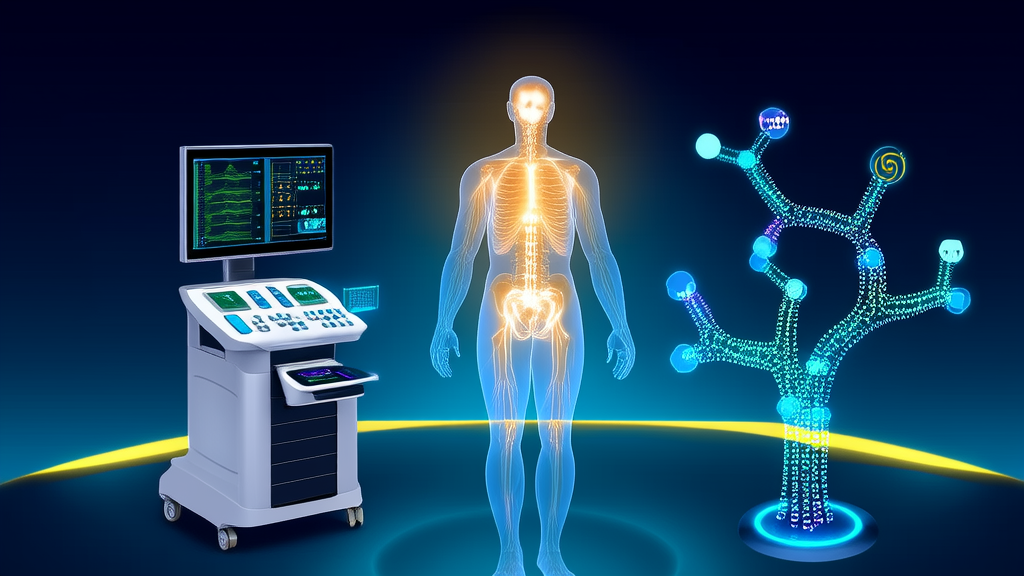🧠 Daily AI & Tech Trends
AI in Healthcare: 9.4% Reduction in False Negatives Saves Lives

The AI Revolution: Transforming Industries and Everyday Life
Artificial Intelligence (AI) is no longer just a buzzword; it's a transformative force that is reshaping industries, enhancing consumer experiences, and addressing some of the most pressing social issues. In this blog post, we'll explore how AI is making a tangible impact in healthcare, retail, and the startup ecosystem, with real-world examples and practical implications.
AI in Healthcare: Saving Lives and Improving Patient Care
One of the most promising areas for AI is healthcare, where it is being used to diagnose diseases, personalize treatment, and improve patient outcomes. For example, Google Health has developed an AI-powered tool that can detect breast cancer more accurately than human radiologists. In a study involving 28,000 mammograms, the AI system reduced false positives by 5.7% and false negatives by 9.4%, potentially saving thousands of lives.
Practical Impact: This technology not only improves the accuracy of diagnoses but also reduces the need for unnecessary biopsies and follow-up tests, leading to significant cost savings and less anxiety for patients.
Real-World Example: The Royal Marsden NHS Foundation Trust in the UK has implemented this AI tool, and early results show a 10% improvement in detection rates compared to traditional methods.
Future Implications: As AI continues to evolve, we can expect even more advanced diagnostic tools that can detect a wider range of diseases at earlier stages, ultimately improving patient care and reducing healthcare costs.
AI in Retail: Personalizing the Shopping Experience
Retail is another industry where AI is making a significant impact. Companies like Amazon and Walmart are using AI to personalize the shopping experience, optimize supply chains, and enhance customer service. For instance, Amazon's recommendation engine uses machine learning to suggest products based on a user's browsing and purchase history, leading to a 35% increase in sales from personalized recommendations.
Practical Impact: By providing tailored product suggestions, retailers can increase customer satisfaction and drive higher sales. Additionally, AI-powered inventory management systems help reduce overstocking and understocking, leading to more efficient operations and lower costs.
Real-World Example: Walmart has implemented AI-driven shelf-scanning robots in its stores to monitor inventory levels and ensure that shelves are always stocked. This has led to a 50% reduction in out-of-stock items and a 10% increase in sales for the monitored products.
Future Implications: As AI becomes more sophisticated, we can expect even more personalized and seamless shopping experiences, with virtual assistants and chatbots providing instant support and recommendations, and smart stores offering frictionless checkout processes.
Innovative AI Startups: Disrupting Traditional Industries
The AI startup ecosystem is thriving, with innovative companies developing unique solutions to address various challenges. One such startup is Cognii, which uses AI to provide personalized learning and assessment for students. Cognii's virtual tutor can understand and evaluate open-ended responses, providing immediate feedback and helping students learn more effectively.
Practical Impact: Cognii's technology not only enhances the learning experience but also reduces the workload for teachers, allowing them to focus on more complex tasks. It has been shown to improve student engagement and performance, with a 20% increase in test scores in pilot programs.
Real-World Example: Cognii has partnered with several educational institutions, including the University of California, Berkeley, and the University of Texas, Austin, to integrate its AI-powered tutoring system into their online courses.
Future Implications: As more startups like Cognii emerge, we can expect to see a revolution in education, with AI-powered tools providing personalized and accessible learning experiences for students around the world. This could lead to a more equitable and effective education system, preparing the next generation for the challenges of the future.
These examples illustrate how AI is not just a futuristic concept but a practical and impactful technology that is already transforming our world. From saving lives in healthcare to personalizing the shopping experience and revolutionizing education, AI is here to stay, and its potential is only beginning to be realized.
Published on 2025-07-05T00:01:18.882471